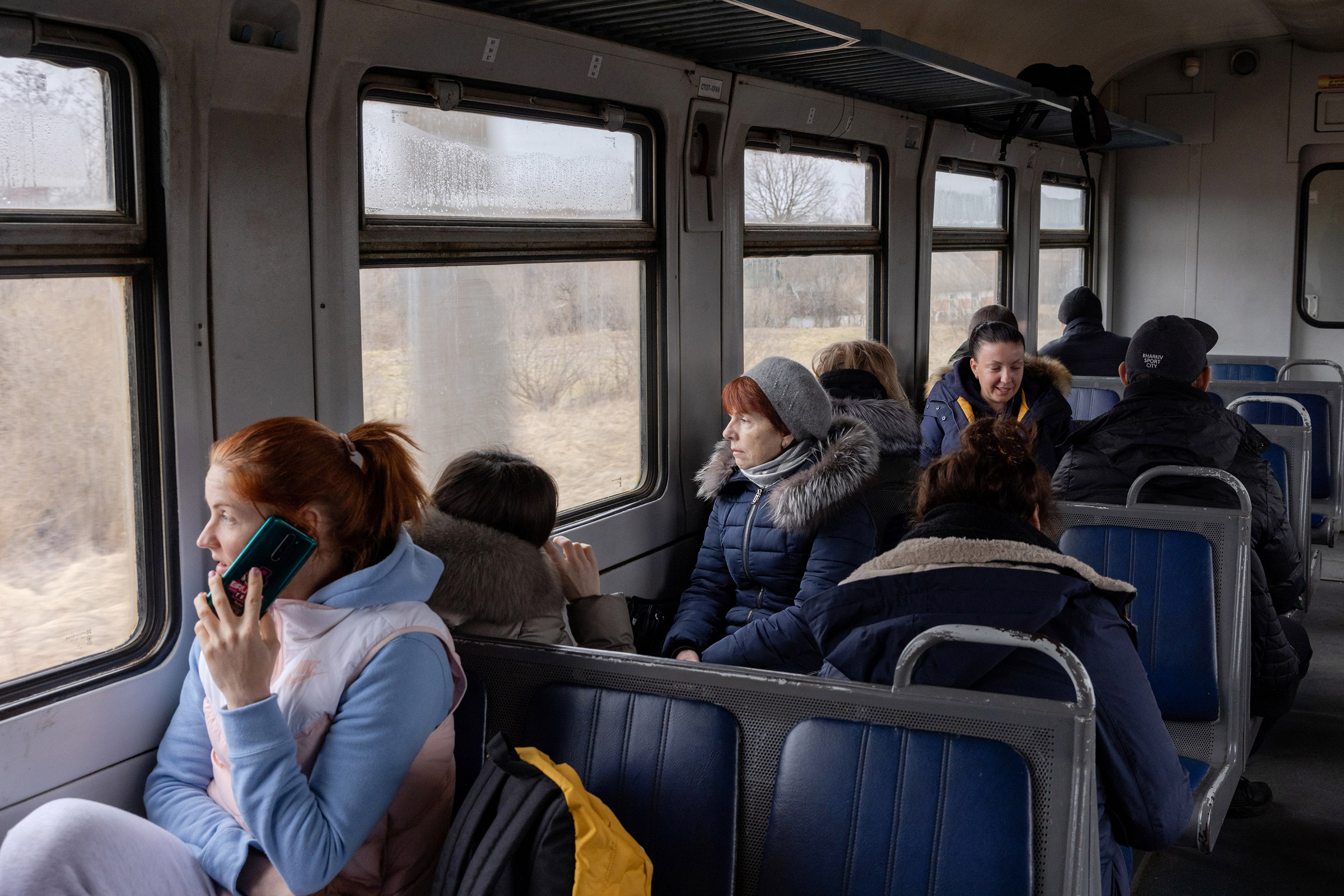In the city of Lviv in western Ukraine, Alisa Kosheleva walks the cobbled streets, waiting, almost afraid to blink. She wears a zip-up hoodie, T-shirt, and cropped gray sweatpants emblazoned with an image of Mickey Mouse, despite the fact that it’s 40°F (4°C) outside. Light snow falls on her red hair.
Her casual look belies her turmoil: a fresh wound as old as time, a mother separated from her child during a war. The 32-year-old can’t decide what is worse—waiting for news when there is none, or trying to gather information from the photos and videos that make it out of her hometown of Mariupol, now besieged and slowly starving without supplies. “Being with my son is my one and only wish,” she says.
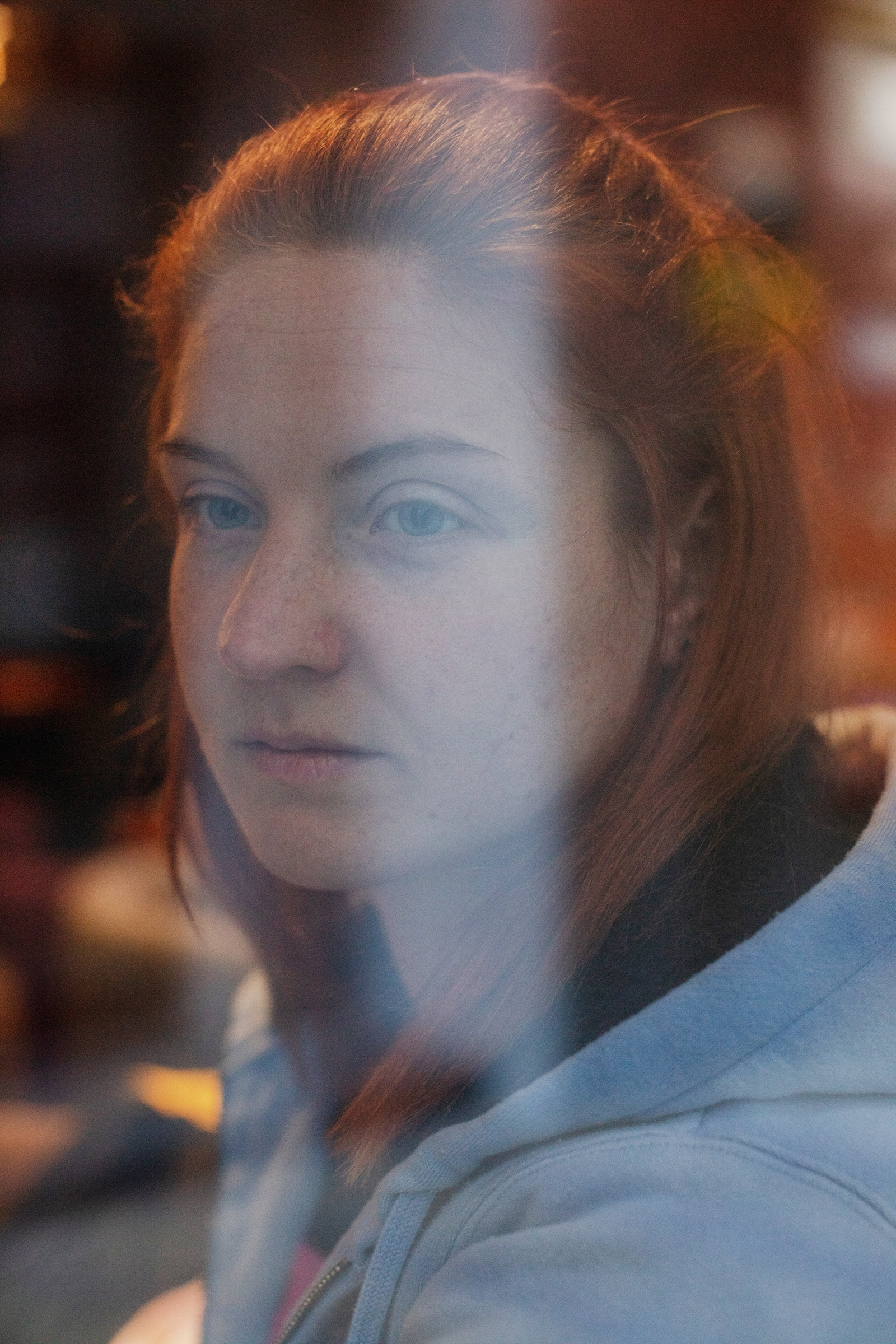
In mid-February, Kosheleva, a crypto project manager, left Mariupol to visit Barcelona. It was her first vacation in three years, and her first time traveling outside of Ukraine. It wasn’t an easy decision to leave behind Kirill, her 9-year-old son, but he was with his father and grandmother. She shows me photos of Kirill on her phone, a smile briefly flickering across her face. When she was in Barcelona, they chatted by video call almost every day. She showed him the waves and the setting sun. Her boy, in turn, proudly held up a medal from his first taekwondo competition.
But on Feb. 24, toward the end of her trip, Russia launched a full-scale assault on Ukraine, and Kosheleva scrambled to get home to Mariupol. Now, almost three weeks on, she has made it only as far as Lviv, a large city near the border with Poland that has become a safe haven for Ukrainians fleeing violence. “Everyone has talked me out of going farther,” she says, days after I first met her on board a train from Poland to Ukraine.
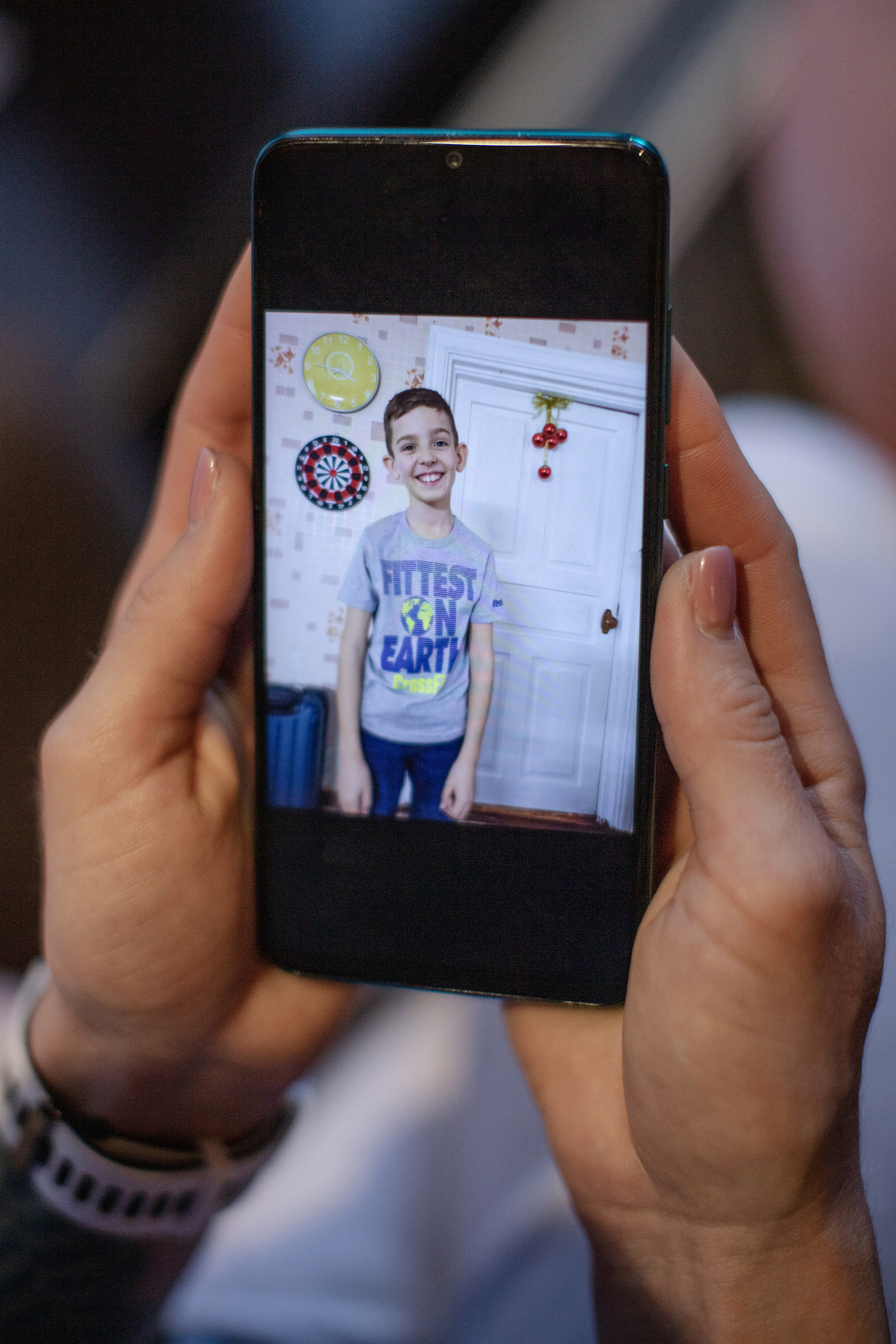
Some 3 million Ukrainians, almost all women and children, have fled their country since the Russian invasion began, according to the U.N. It’s the largest exodus in Europe since World War II, and the number is expected to sharply rise. An additional 2 million people are estimated to be displaced within the nation.
The war has highlighted traditional gender stereotypes in Ukraine, where men are widely shamed if they do not fight. While there is no enforced conscription, most men ages 18 to 60 are barred from leaving the country. Women are encouraged by the state to make their families a priority.
Read More: They Called Ukraine Home. But They Faced Violence and Racism When They Tried to Flee
But as those fleeing the fighting squeeze onto trains, buses, and cars heading west, a smaller contingent is rushing home from abroad and into the line of fire. At least 260,000 Ukrainians have returned since the invasion began, according to the Ukrainian border guard, mostly men joining the fight against Russia. But around 1 in 5 are women—some of whom are also fighting or joining the war effort. The vast majority, however, are returning to their families. They are the grandmothers looking after the children of sons in the Ukrainian army; the daughters who will wait out the war with elderly parents; the sisters lending a hand to their brothers’ partners; and mothers, like Kosheleva, returning home in the hope of reuniting with their children.
When Kosheleva spoke to her son on March 2, she was in Poland on her way back to Ukraine. “I told him, ‘Don’t worry, I am coming to you,’” she says. The next day, there was no signal, and six days later, she still hadn’t heard from him. “I can’t sleep. My body knows it must rest for a few hours, but I’m also thinking, ‘What if the message goes through this time? What if a connection appears?’”
Three days earlier, in the Polish town of Przemysl on the border with Ukraine, streams of war-weary women and children disembarked from the morning train and made their way down the ramps. They passed a smaller line of people going in the opposite direction, into Ukraine. The latter group included Ukrainian men returning to defend their country; foreign fighters responding to President Volodymyr Zelensky’s call for an international legion; humanitarians hauling bundles of aid; and dozens of mothers, faces framed by fur, stamping their feet in the cold. Over several days, I spoke with more than 10 of them, women who were desperate to retrieve their children—or simply be closer to them.
Read More: Meet the Foreign Fighters Risking Their Lives in Ukraine
“What mother wouldn’t do this?” asks Natali Khmel, 33, who traveled for three days from Jerusalem, where she has resided for the past four years since her divorce. Her children, 14-year-old Artyom and 10-year-old Anastasia, lived in her native Kyiv with their father. Russian airstrikes had recently bombarded small towns encircling the Ukrainian capital, killing scores of civilians, including families fleeing in their cars.
Khmel’s children were sleeping in their school’s bomb shelter. She methodically checked social media for updates on her planned route to Kyiv: a road blown up here, a train targeted there. “I don’t even care how I reach them, I’ll go on foot if I have to,” she tells me as we shiver in line for the train. She has six months left to go on her physio-therapy course in Israel, but gave it up for her personal rescue mission. “My kids told me, ‘Mom, don’t even think about coming.’ But I have no other choice. I simply must be with them.”
Nearby, Anna Abramosova sips steaming tea out of a little cup. Last summer, the 35-year-old former veterinarian left the eastern Donbas region to work in an Amazon warehouse in Poland to pack boxes bound for Germany. She is one of the hundreds of thousands of Ukrainian women who go abroad each year to support their families.
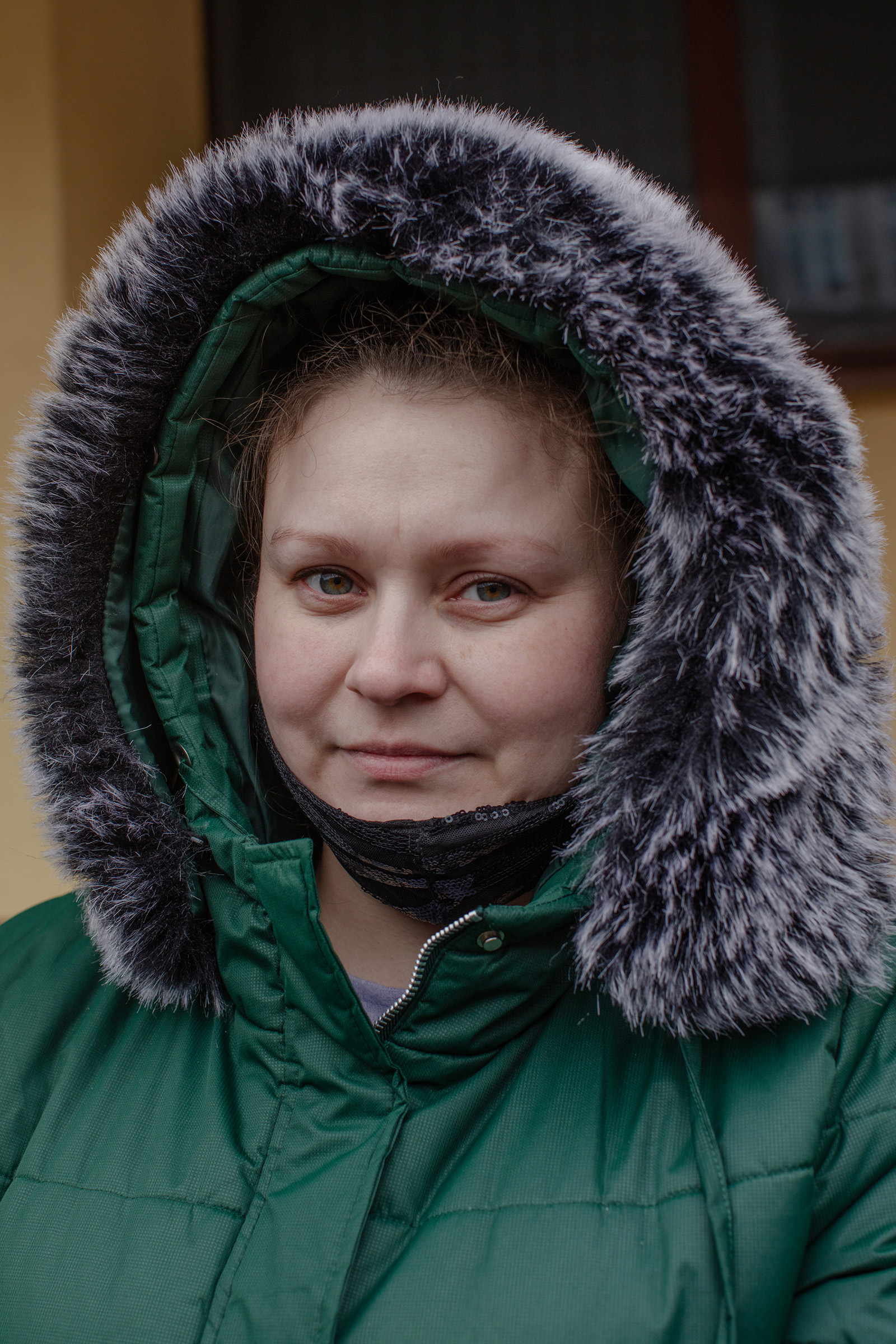
Abramosova left Ukraine for her two teenage sons; now they are the reasons for her return. “They need their mother,” she says. This wasn’t their first experience with conflict; their small town of Druzhkivka borders the region of Donetsk, where Ukrainian forces have been locked in a nearly eight-year conflict with Russia-backed separatists. But this time felt different. “If we get bombed, so be it. I will have done my best for them,” Abramosova says.
The Polish border guards open the gates, and a line of people rush through passport control and onto the platform. The mothers board the train, a frisson of nervous excitement sweeping through them. “Let’s do this!” cries Abramosova. The train jerks forward and begins its crawl past Polish farms and industrial parks.
The train is half full and filthy, scattered with empty food cartons, used toilet paper, and the occasional mound of cat litter. Its sole toilet is covered in human waste and has no running water; plastic bottles of urine dot the carriage floors.
Kosheleva, alone in her anguish, gazes out of the window, her hands cradling her cell phone. She watches as two trains packed with women and children pass by in the opposite direction. Inside, mothers jostle for room while their kids blow hot air onto the windows, drawing patterns with their little fingers. Some giggle and form peace signs with their hands.
Kosheleva can think of nothing but Kirill, about what he must be seeing. She takes comfort in knowing there is a shelter next door to the home of her ex-husband Mikhail that he and Kirill can use, rather than an ordinary basement, “where there’s no air and you can’t breathe.”
A few hours into the journey, Abramosova gets word from a friend that a Russian artillery strike destroyed her neighbor’s house overnight. She goes over to the space between the carriages to smoke a cigarette, holding up her phone to show me a photo of a pile of rubble. “All will be OK, all will be OK,” she repeats like a mantra, her green eyes wide.
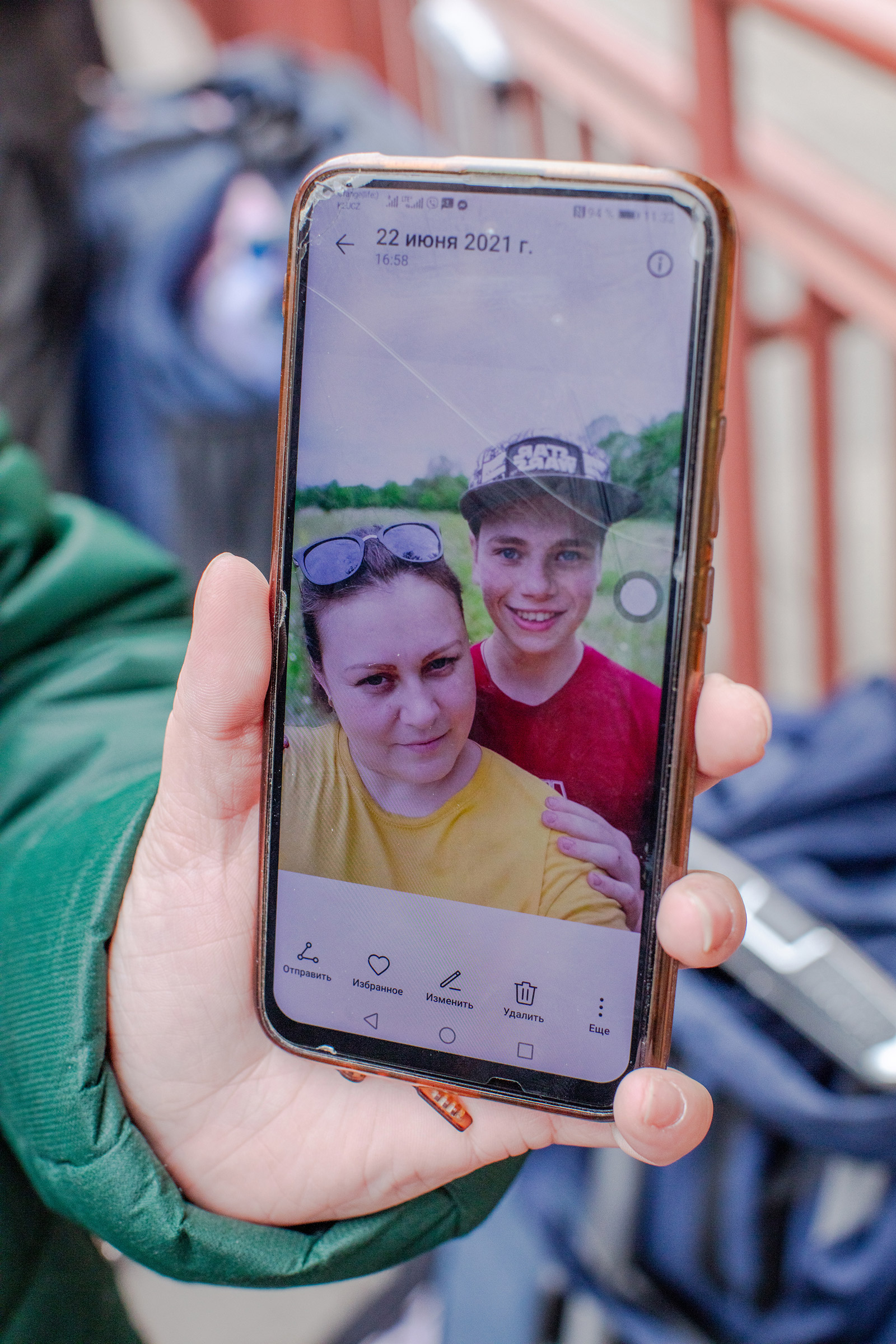
Soon, the wheat fields of Ukraine come into view, and the train slows before stopping at the border. Ukrainian guards check its passengers and cargo, telling foreign fighters where to enlist. But after entering Ukraine, the train stops again, this time for hours. Passengers are told to catch a commuter train that has pulled into the station two platforms over. Dragging their luggage behind them, the mothers stumble into the local train. There is mostly laughter and happy tears. “Welcome to Ukraine!” Khmel cries in English. “Where’s the duty free?”
But as the train weaves its way through threadbare towns, the mood on board darkens. The faces of the men returning home to fight grow longer. Talk of war is incessant among the local passengers, who are gathered in small groups around phones to watch the latest videos and news from the front.
Abramosova starts to question her decision to not tell her boys—Nikita, 16, and Vanya, 14—that she was coming home. She wanted to surprise them, telling them not to leave home as a care package from Poland was arriving. “I suppose that’s what I am,” she says, suddenly sounding vulnerable.
It is past nightfall when the train pulls into the station in Lviv, ending a 10-hour journey that in peacetime would have taken just over two. Most mothers scatter into the darkness, hoping to catch night trains going east.
Twenty-four hours later, Khmel managed to retrieve her children from Kyiv. “I took them out as quickly as possible,” she says from Chernivtsi in southwestern Ukraine, before sending me a smiling selfie with Anastasia, curled up together in bed, their black hair in matching ponytails. Soon the three of them will travel to Romania, where she will apply for their Israeli residencies.
Abramosova made it to her town in Donbas, taking trains and cars across the width of Ukraine, passing Russian tanks on the way, air-raid sirens ringing in their ears. “I’m never leaving home again,” Abramosova says from her apartment, where she and a girlfriend are celebrating their reunion over vodka. “My boys, my boys!” she gushes to me on a video call, pinching her son Vanya’s gangly arms. “Look at this one!” she says. “Soon he’ll be ready for the Ukrainian army!”
Stuck in a hostel in Lviv, Kosheleva waited for news. Her mother, who is in Dnipro in central Ukraine, persuaded her to sit tight. When we speak on March 10, she tells me the information out of Mariupol is unbearable. There are bodies of civilians lying on the streets, and Russian forces bombed a maternity hospital a day earlier.
According to Ukrainian officials, at least 2,500 civilians have been killed there. The city of half a million is under constant Russian shelling, with no power, heat, water, or communications. People have started to bury their dead in mass graves, and inhabitants are melting snow to survive. On March 14, more than 160 cars left Mariupol in what appeared to be the first successful attempt at evacuating civilians to Zaporizhzhia, a city about 140 miles to its west. The road to safety is perilous and mined, but a trickle of people are making it out. Kosheleva believes Kirill is in the convoy.
After two weeks of total silence, Kosheleva finally got through to her ex-husband’s phone on March 16. Through a crackly line, she also heard Kirill’s voice. “You can’t even imagine how happy I am,” she says, moments after boarding a train heading east. “It’s too early to talk about them being in the clear, but they’re getting closer.”
—With reporting by Simmone Shah/New York
More Must-Reads From TIME
- The 100 Most Influential People of 2024
- Coco Gauff Is Playing for Herself Now
- Scenes From Pro-Palestinian Encampments Across U.S. Universities
- 6 Compliments That Land Every Time
- If You're Dating Right Now , You're Brave: Column
- The AI That Could Heal a Divided Internet
- Fallout Is a Brilliant Model for the Future of Video Game Adaptations
- Want Weekly Recs on What to Watch, Read, and More? Sign Up for Worth Your Time
Contact us at letters@time.com
